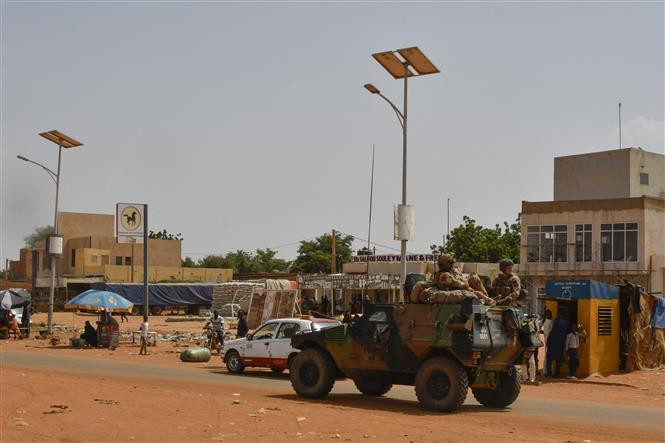The plans presented by the US side will be discussed by Niger with the aim of ensuring that Washington's departure will take place in "the best possible conditions, orderly, secure and in compliance with the set deadlines".

A US delegation will present the Niger government with detailed plans to close two key Pentagon bases and withdraw all US troops after the Biden administration conducted tense negotiations over the African country's decision to end its counterterrorism mission, US officials said, according to the Washington Post.
Senior US Defense Department officials, including Chris Maier, assistant secretary of defense for special operations and low-intensity conflict, and Lieutenant General Dagvin Anderson, who oversees force development in the Pentagon's Joint Chiefs of Staff, began discussions with Nigerien officials this week.
The talks are a new development in a months-long standoff over the US military presence in Niger and the nature of the broader relationship between the two countries. It comes as Niger’s prime minister, appointed after a 2023 military coup, accuses the US of trying to dictate the African nation’s foreign affairs arrangements and blames Washington for the breakdown of a vital security partnership.
Several senior White House officials have also discussed preparations to leave two US bases that have hosted drone operations in the region for more than a decade, and the withdrawal of about 1,000 US personnel, including soldiers, civilians and defense contractors.
While US officials had hoped for months that a full withdrawal could be avoided following the Biden administration’s decision to suspend most military aid following the coup in Niger, they are now having to go ahead with that plan. Whether the cooperation can continue in earnest in the future remains to be seen.
A senior US defense official noted that it would be several weeks before the first shipments of equipment were shipped after the withdrawal order was given, but he also said that US troops could be rotated out of Niger immediately.
The Niger government said the talks with General Anderson and US Assistant Secretary of Defense Maier, with the participation of US Ambassador to Niger Kathleen FitzGibbon, represented an important step following Niamey’s decision this spring to end the US military presence, marking “a turning point in relations between the two countries”.
The Niger government said the plans presented by the US side would be discussed by its officials with the aim of ensuring Washington's departure would take place in "the best possible conditions, orderly, secure and in compliance with the set deadlines".
A second US official confirmed the US was focusing on assessing what equipment must be shipped out of Niger as its forces withdraw and what can be left behind. He said those decisions would depend in part on the value and sensitivity of each item — weapons, ammunition and communications equipment, for example, must be shipped, but things like vehicles or construction equipment could be left behind.
Meanwhile, US forces have had little interaction with Russian troops, who share an air base where some US troops are stationed. Niger’s decision to invite Russian troops as military relations with Washington deteriorate is another point of contention with the US, which is locked in a major confrontation with Moscow over the conflict in Ukraine.
U.S. officials plan to ask Niger to help ensure that sensitive equipment or facilities do not fall into Russian hands after they leave. At the same time, the Biden administration is looking to establish alternative bases to counter the growing Islamist insurgency in the Sahel. Without a base in Niger, the U.S. will have a harder time containing the threat posed by groups linked to al-Qaeda and the Islamic State.
A US official said Washington was looking for “willing partners,” focusing on Ivory Coast and Nigeria as potential possibilities. The head of US Africa Command, Marine General Michael Langley, visited those countries last month.